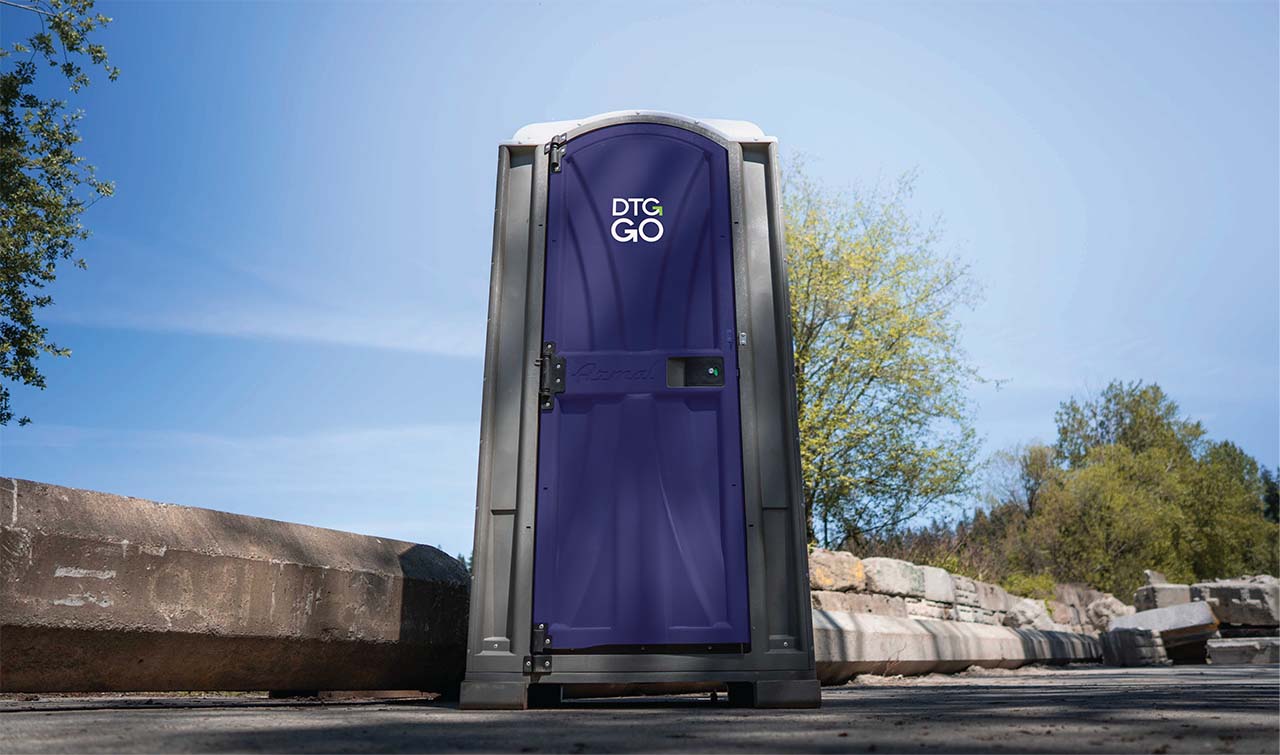Services:
Recycling Dumpsters
Recycling Dumpsters That Go Beyond Durable.
Need a recycling dumpster rental for your clean-up or tear-down project? We’ve got you. Our roll-off dumpsters come in a wide variety of sizes, making them perfect for all commercial and construction recycling uses.
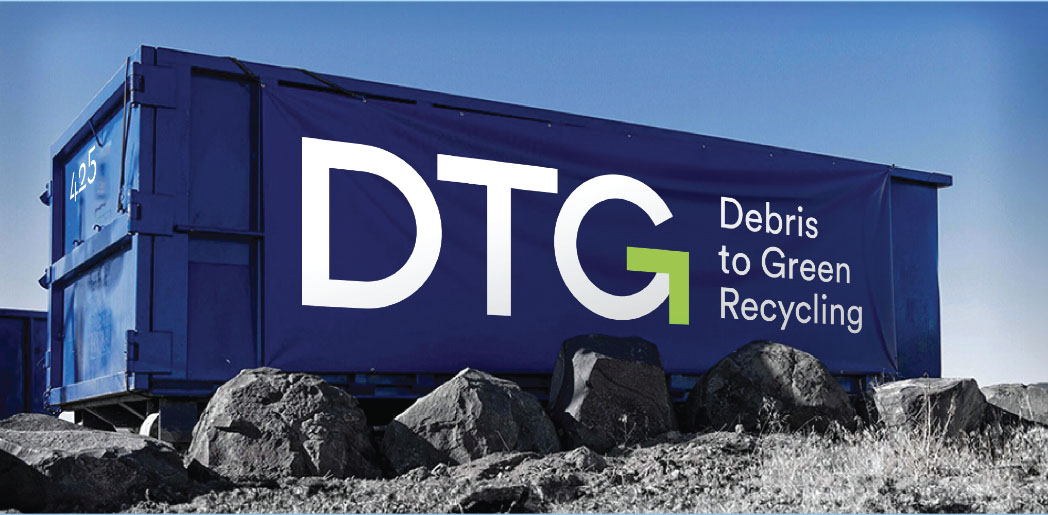
Ready For Anything
Rent a recycling dumpster from DTG and your project – any kind of project – is instantly set up for
success.
Commercial
The perfect solution for your recycling needs.
Construction
Keep your worksite clean & safe with a roll-off dumpster rental.
Events
No matter what your occasion, DTG takes stress out of the equation.
Other Projects
For renovations, yard waste, dig sites, & more, trust DTG to deliver.
Know what you’re looking for? Rent now.
Recycling Dumpster Sizes For Every Project
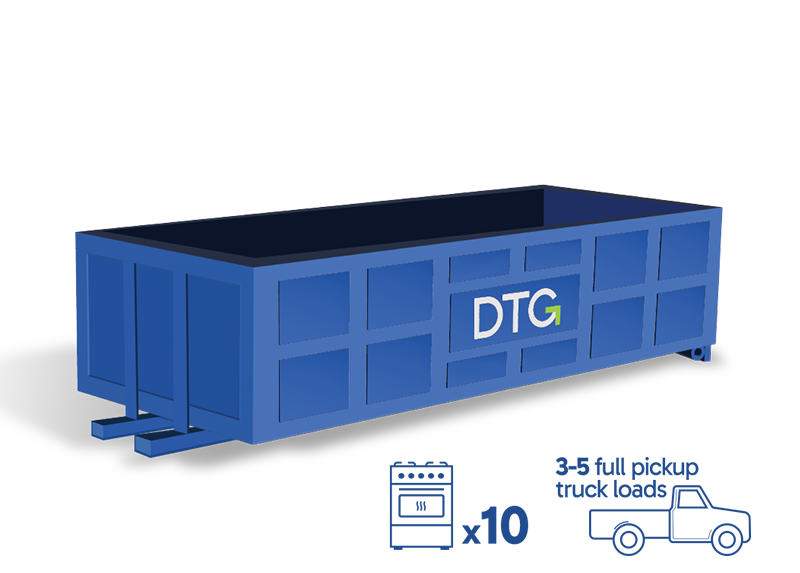
10-20 Yard Dumpster
A great size for yard waste.
- 6.5’ x 12’ x 4’ to 8’ x 20’ x 4’
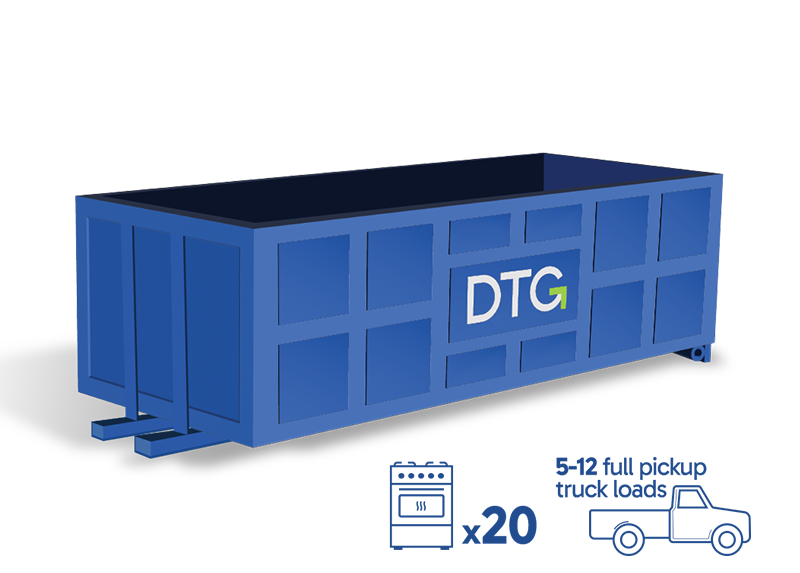
20-30 Yard Dumpster
The perfect size for remodels & small construction projects.
- 8’ x 20’ x 4’ to 8’ x 20’ x 7’
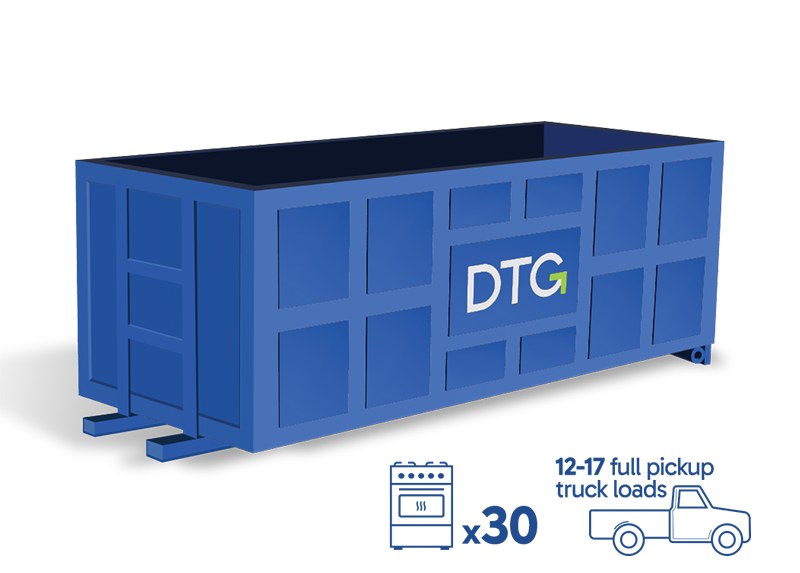
30-40 Yard Dumpster
Ideal for large remodels & shake roof tear offs.
- 8’ x 20’ x 7’ to 8’ x 22’ x 7
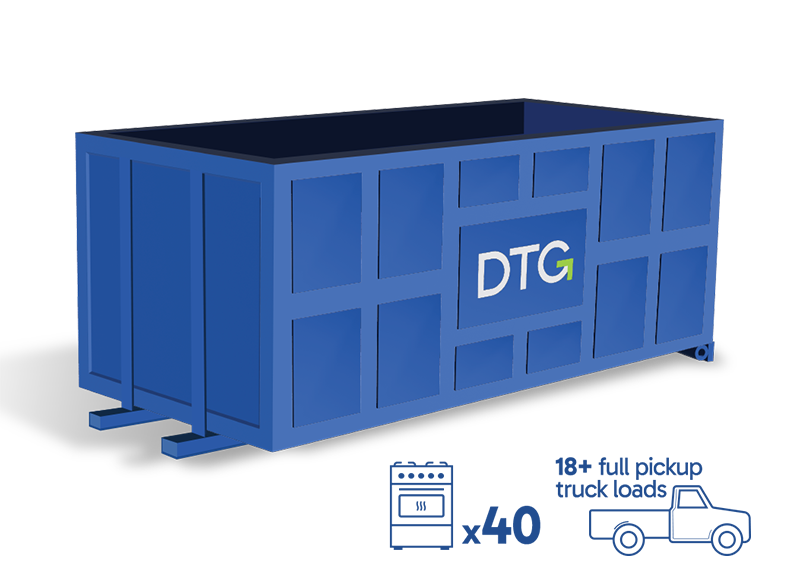
40+ Yard Dumpster
The best size for construction sites & demolition projects.
- Up to 8’ x 24’ x 8.5’
accepted items
- Brick, Asphalt & Concrete
- Recyclable Construction & Home Renovation Debris
- Lumber
- Wooden Furniture and Wood Scraps
- Yard Debris
- Roofing Shingles
Accepted With A Fee
- Dirt
- Upholstered Furniture
- Electronics
- Flooring Materials
- Mattresses & Box Springs
- Household Appliances
prohibited items
- Adhesives
- Aerosol Cans
- Asbestos
- Batteries
- Contaminated Soils & Absorbents
- Cretaceous Condensate
- Freon Appliances
- Hazardous Materials
- Hot Water Tanks
- Household Chemical Cleaners
- Household Items
- Industrial Drums
- Ink & Resins
- Nuclear Waste
- Oils, Fuels & Propane Tanks
- Paint
- Railroad Ties
- Tires
- Televisions
- Used Medical Devices and Equipment
YOU SORT, you Save
Want to save up to $100/ton?
Learn more about our source separation program.

small-footprint containers
Need Something Smaller?
Book Now
We got you.
Please fill out this form to book a recycling dumpster now! Upon completion of the form, you will promptly receive a call from us to confirm your order.
Please fill out this form to book a recycling dumpster. As you have reached us outside of our business hours, we will give you a call the following business day to confirm your order.
the dtg standard
Dedicated Local Support
Unmatched Reliability
Flexible Scheduling
Full-Service Capability
FAQ
How do I rent a recycling dumpster from DTG?
It’s easy! Just follow these four steps.
- Complete the ‘Book Now’ form above.
- Remove obstacles. To avoid paying a trip fee, be sure to remove any vehicles, objects, or low-hanging obstructions from the delivery location.
- Fill your dumpster with recyclable debris. Keep in mind your included weight limit to avoid paying an overload fee.
- Schedule your recycling dumpster pickup. As soon as you’re ready, we’ll come and haul away your dumpster. It must be easily accessible and only contain approved recyclable debris, piled no higher than the sidewalls, otherwise a trip fee will be charged.
How much does it cost to rent a recycling dumpster?
Recycling Dumpster rental prices are determined by four factors
- Debris type
- Debris weight
- Duration of rental
- Rental location
The size of the dumpster does not affect the price. Contact us today for a quote!
Where is the best place to put a roll-off recycling dumpster?
Dumpsters must be placed on a level surface—we cannot drop a container on a steep incline. It must also not be near any low-hanging power lines. Locate an even space with a minimum of 3 feet of clearance on all sides of the dumpster, an unobstructed height of at least 10 feet, and an open front space of at least 34 feet for a service pickup. To lessen the chance of damage, we recommend covering or placing wood underneath your dumpster if a paved driveway is being used.
Do I need a permit to rent a roll off recycling dumpster?
Typically, dumpster permits are necessary if you intend to place your dumpster container on a street, sidewalk, or other public property. A permit is not required if you’re placing it on your private property or the property of your business. When you place your order online, our team will walk you through the permitting process and help you find a suitable location for your recycling dumpster rental.
Will a recycling dumpster fit in my driveway?
We offer recycling dumpster sizes ranging from 10 to 45 cubic yards. Most of our recycling dumpster rentals are eight feet wide, making them suitable for most driveways.
We've got you covered:
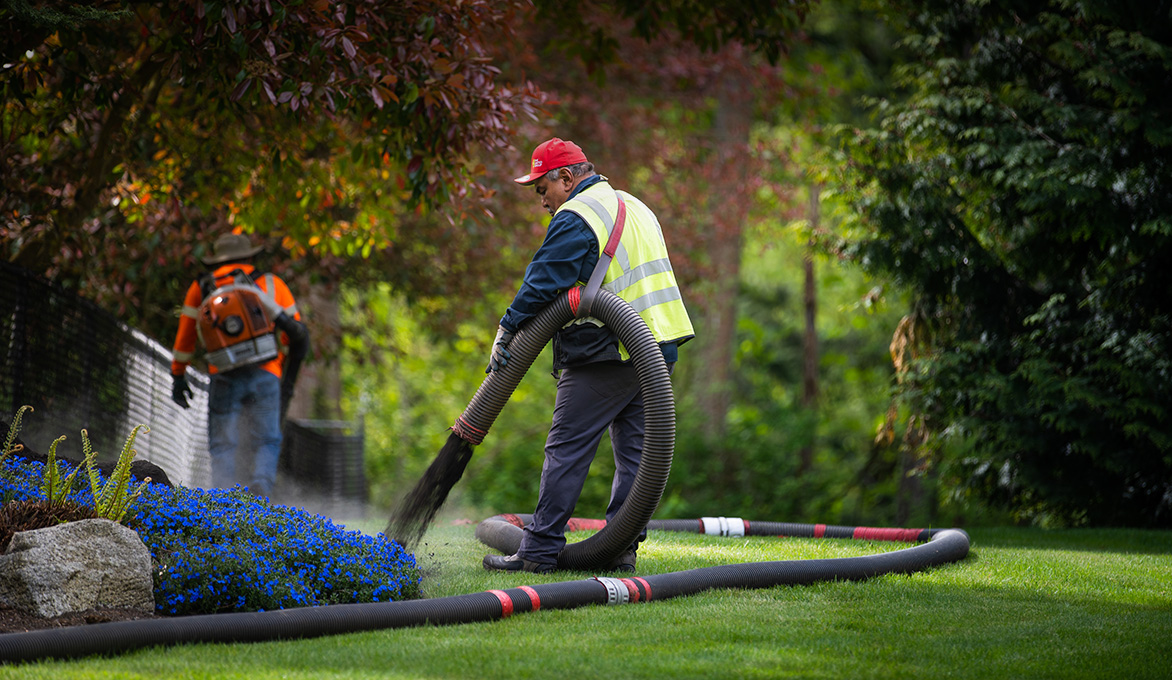
Landscape Materials & Organics
